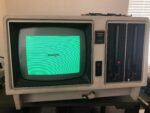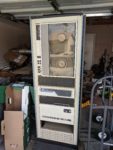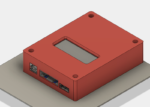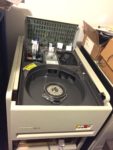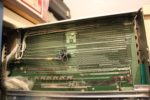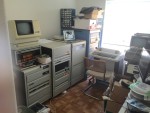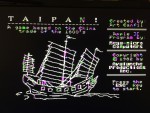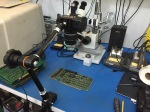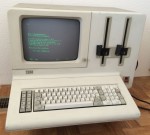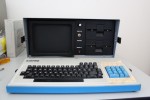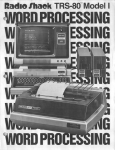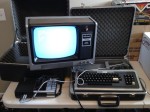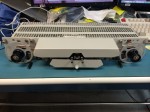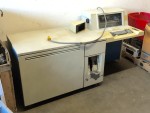
A couple of days ago, I learned that there’s an IBM System/32 up for sale at an electronics recycler in Corona, California. This is very close to my home, and I happen to have a bit of free time right now between jobs, so I figured I should go look at it. Even though I’m quite tempted by this beautiful beast, I really shouldn’t spend the money or floor space on it at this time. But, being local, maybe I can help it find its way to its new home, just as another collector helped me acquire my VAX-11/730?
The seller says they got it about six months ago, and it was used for payroll at some small company. He says that the folks that he got it from claimed that it still works, but he hasn’t tried powering it up… which is good, because it probably needs lots of cleaning, careful examination of the power supplies, and other such attention to make sure that the magic smoke stays inside.
It’s a bit dirty, but it looks complete aside from a missing paper rack on the back side. This one has the keyswitch option, which replaces the power toggle switch next to they keyboard with a tubular lock.
… Read More!
